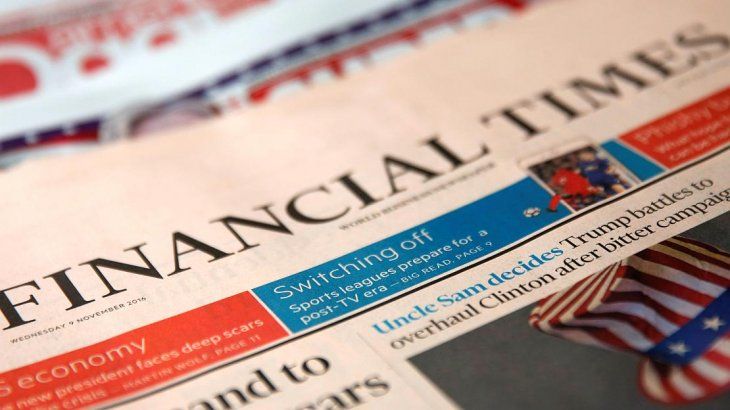After the sharp fall of the Argentine stock market, President Javier Milei faces doubts from the market regarding its economic plan. The gaze of investors reached the newspaper Financial Times that He questioned the government’s “honeymoon” with the business world, despite the approval of recent laws.
Despite having stood out last week “the expansion of the Argentine economy” and to provoke a reaction from the president on social media, the British newspaper published a harsh article on Sunday about the current economic situation in the country.
Javier Milei.webp
The Financial Times spoke about the market reaction after the announcements of Javier Milei’s Government
“Milei’s honeymoon in the market ends as investors question the economic plan”is titled the publication from one of the most prestigious economic newspapers in Europe, a source of information for the world’s leading investors and business owners.
The article, by correspondent Ciara Nugent, notes that last week President “Milei revealed a plan to stabilize the peso: ‘If I close all the money printing taps, the problem ends.'” However, it seems that “Investors do not seem to agree.”
The note indicates that after the Government’s announcements “Argentina’s stock market fell by as much as 12.3 percent last week, and its dollar-denominated sovereign bonds up 11.3 percent before paring some losses, while Critics called the new measures short-term and inconsistent.
The Financial Times.jpg

Pressgazette.co.uk
“Short-term and inconsistent measures” are the view of investors on the Government’s announcements
In addition to pointing out the doubts and uncertainty in the business world, the Financial Times casts doubt on Milei’s original program by stating that “Delays in building up foreign exchange reserves will slow down the government’s plan to lift exchange controls.”
The removal of the cepo is, according to the newspaper, a “a prerequisite for foreign investment and significant economic growth”. The difficulties in promoting the entry of foreign currency will have as a corollary an increase in “the probability that the government have to default on more than $9 billion in payments of its foreign currency debt next year.”
According to the article, investors “are Concerns that controlling inflation at all costs will distract attention from other ingredients Argentina’s long-term recovery: the elimination of exchange controls, accumulation of reserves and access to international capital markets“.
And if that were not enough, also It refers to the Government’s complex relationship with the International Monetary Fund (IMF) Noting that “economically unorthodox measures to support the peso will also strain negotiations that Milei recently started with the IMF on a possible new loan for Argentina, which already owes the fund $43 billion.”
“The analysts They say the government is placing many of its hopes on the idea that the IMF will agree to lend to Argentina more money to help it escape exchange controls, particularly if Donald Trump, whom Milei considered an ideological ally, wins the November elections in the United States,” notes the prestigious newspaper.
However, he doubts that an agreement can be reached with the interventionist measures announced recently.The government’s decision to use its reserves to shore up the peso will make it more difficult to reach an agreementsince the IMF has criticized such practices,” he emphasizes and clarifies the country’s position with respect to the organization, given that Argentina “is already the largest debtor of the IMF and the recipient of the largest number of IMF bailouts in history.”
To complete the picture, the article mentions the President’s accusation against Macro Bank due to exchange rate volatility. “Milei has dismissed concerns about his economic plan, blaming Argentine banks for exchange rate volatility. Last week he accused one of the banks of deliberately trying to destabilize the government by exercising put options, agreements that force the central bank to buy back its debt, and forcing the monetary authority to print pesos,” the paper says.
The newspaper’s correspondent then refers to the Government’s task of stopping the rise in prices: “The bet of Milei is that controlling inflation is the key to maintaining public support for his austerity campaign.” However, expresses the complaints of “business leaders”who increasingly question the slow policy of devaluation of Caputo is harming the competitiveness of exports.”
Source: Ambito




